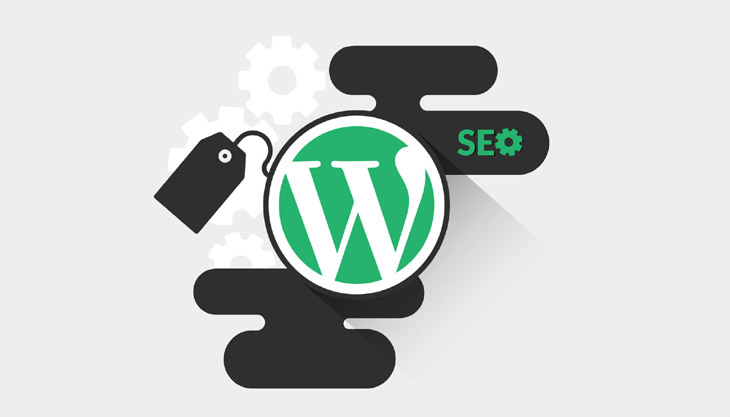Looking to boost your WordPress site’s visibility on search engines and draw in a wave of enthusiastic visitors? You’ve come to the right spot. Enhancing your WordPress Search Engine Optimization (SEO) is essential for increasing website traffic. Unfortunately, many WordPress SEO resources are overly complex, making it difficult for newcomers to begin.
This resource stands out. We’ve outlined the most effective WordPress SEO strategies in straightforward, practical steps that are accessible to everyone. In this guide, we’ll reveal the best WordPress SEO advice and strategies to enhance your WordPress SEO and attract more natural traffic.
WordPress SEO for the Novice You might have come across experts claiming that WordPress is SEO-friendly, which is precisely why it’s a popular choice for starting a blog or website.
While WordPress ensures that the code it produces adheres to SEO best practices, there’s much more you must do to fully leverage your SEO potential.
We offer a series of practical steps to correctly optimize your WordPress SEO. To simplify, we’ve included a table of contents to make navigating our comprehensive WordPress SEO guide straightforward.
What is SEO?
SEO, or Search Engine Optimization, is the practice of improving the visibility and ranking of a website or web page in organic (non-paid) search engine results. The primary goal of SEO is to increase the quantity and quality of traffic to a website from search engines like Google, Bing, and Yahoo.
There are many different techniques and strategies involved in effective SEO. These can include optimizing website content and structure, improving page loading speed, incorporating relevant keywords, building high-quality backlinks, and ensuring the site is mobile-friendly. SEO also involves staying up-to-date with the latest search engine algorithms and best practices, as these are constantly evolving.
By implementing solid SEO practices, website owners can increase their chances of appearing higher in the search results for queries relevant to their business or offerings. This improved visibility can lead to more organic traffic, better brand awareness, and ultimately, higher conversion rates and revenue. In today’s digital landscape, SEO has become an essential component of any comprehensive online marketing strategy.
Ultimately, the goal of SEO is to make a website as appealing and relevant as possible to both search engines and human users. By optimizing the technical, on-page, and off-page elements of a site, businesses can enhance their discoverability and reach their target audience more effectively.
Why SEO is important
Moreover, SEO plays a crucial role in establishing your brand’s authority in your industry. When your website consistently appears at the top of search engine results for relevant keywords, it not only increases visibility but also positions your brand as a thought leader. This can further enhance your credibility and attract a loyal customer base who trusts your expertise and offerings.
In addition, SEO can also help in improving the user experience on your website. By optimizing your site for search engines, you are likely to enhance its overall performance, speed, and usability. This, in turn, can lead to higher engagement, longer time spent on your site, and ultimately, increased conversions. By focusing on SEO strategies that prioritize user experience, you can create a seamless journey for visitors from the moment they land on your site to the point of conversion, thus maximizing the benefits of your digital marketing efforts.
Furthermore, SEO efforts can also benefit your overall marketing strategy by providing valuable insights into consumer behavior and preferences. By analyzing search data and trends, you can gain a better understanding of what your target audience is searching for and tailor your content and messaging accordingly. This data-driven approach allows you to create more targeted campaigns, address specific pain points, and deliver relevant information to your audience, ultimately leading to higher conversion rates and more effective marketing initiatives. WordPress SEO: The Ultimate Guide (Step by Step)
Basics of WordPress SEO
WordPress SEO involves optimizing your website to rank higher on search engines. Key aspects include using relevant keywords, creating high-quality content, and optimizing meta tags. By focusing on these fundamentals, you can improve your site’s visibility and attract more organic traffic.
In addition to keyword optimization and content quality, another crucial aspect of WordPress SEO is ensuring your website is mobile-friendly. With the increasing number of users accessing websites on mobile devices, having a responsive design is essential for providing a seamless user experience and improving your search engine rankings. By prioritizing mobile optimization alongside other SEO strategies, you can enhance your website’s performance and reach a wider audience.
Furthermore, incorporating backlinks from reputable websites, optimizing website speed, and regularly updating your content are also important factors in boosting your WordPress SEO efforts. By building a strong backlink profile, ensuring fast loading times, and keeping your content fresh and relevant, you can further improve your website’s search engine visibility and overall performance. These additional strategies, when combined with keyword optimization, content quality, and mobile-friendliness, can help you achieve higher rankings and attract even more organic traffic to your WordPress site.
Another effective strategy for enhancing WordPress SEO is conducting regular performance audits and monitoring your website’s analytics. By analyzing key metrics such as traffic sources, user engagement, and conversion rates, you can gain valuable insights into how your site is performing and identify areas for improvement. This data-driven approach allows you to make informed decisions on optimizing your SEO strategy, identifying successful tactics, and adjusting your efforts to align with your goals. By continuously monitoring and analyzing your website’s performance, you can make ongoing enhancements that contribute to long-term SEO success and help your site rank higher in search engine results pages.

